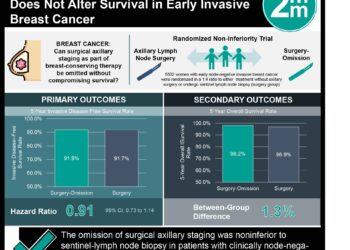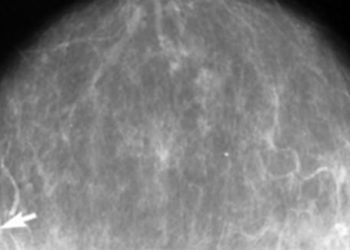HLA-DRB1*07:01 confirmed as risk factor for lapatinib-induced liver damage
Image: PD
1. HLA-DRB1*07:01 and HLA-DQA1*02:01 are strongly associated with liver injury among patients with HER2+ primary breast cancer taking lapatinib.
Evidence Rating Level: 1 (Excellent)
Study Rundown: Lapatinib, a dual HER2/neu and EGFR inhibitor, is used as part of combination therapy for advanced or metastatic HER2-expressing breast cancer. Though previously well-tolerated, it has recently been associated with liver injury. Four human leukocyte antigen (HLA) variants associated with liver injury have been identified using data from previous trials. The purpose of this study was to validate these associations using data from a prospective randomized trial of lapatinib monotherapy (TEACH trial). At the conclusion of this trial, the authors found that the previously identified HLA alleles were strongly associated with liver injury among patients treated with lapatinib. The strongest association was found between ALT elevations and HLA-DRB1*07:01 and HLA-DQA1*02:01. Based on these results, the authors suggest that HLA testing may be used to identify patients at risk for liver injury prior to starting lapatinib. This conclusion is strengthened by the prospective, randomized design of the study and large number of patients included. It should be noted that the original TEACH trial suggested only marginal benefit with lapatinib for disease-free survival in this population, complicating the final interpretation of this study.
Click to read the study in JCO
Relevant Reading: Adjuvant lapatinib for women with early-stage HER2-positive breast cancer: a randomized, controlled, phase 3 trial
In-Depth [prospective randomized controlled trial]: The authors used data from the TEACH trial, a large randomized controlled trial of lapatinib monotherapy with women with HER2+ breast cancer. To assess liver injury, ALT, AST, total bilirubin, and alkaline phosphatase values were collected every 3 months to every 6 weeks throughout the trial, which ran from 2006 to 2009. Genotyping was done to assess the presence of alleles HLA-DRB1*07:01, HLA-DQA1*02:01, HLA-DQB1*02:02 and TNXBrs12153855. A total of 1194 women from the lapatinib arm of the TEACH trial, representing 76% of all women in the treatment arm, were included. Cases were broadly defined as ALT elevation 3 times the upper limit of normal (ULN), and controls those without. The authors found that carriers of the four major histocompatibility complex (MHC) variants were at increased risk for ALT elevation (odds ratio 14). The overall risk of grade 3 ALT elevation was 2.1%, with 7.7% risk among HLA carriers and risk reduction by 0.5% among noncarriers, a similar rate to the placebo arm of the TEACH trial.
More from this author: Rituximab linked with reduced chronic immune disease following stem cell transplantation, High-dose prophylaxis for hemophilia increases costs with minimal benefit, Ambrisentan found ineffective against idiopathic pulmonary fibrosis
©2012-2014 2minutemedicine.com. All rights reserved. No works may be reproduced without expressed written consent from 2minutemedicine.com. Disclaimer: We present factual information directly from peer reviewed medical journals. No post should be construed as medical advice and is not intended as such by the authors, editors, staff or by 2minutemedicine.com. PLEASE SEE A HEALTHCARE PROVIDER IN YOUR AREA IF YOU SEEK MEDICAL ADVICE OF ANY SORT.







